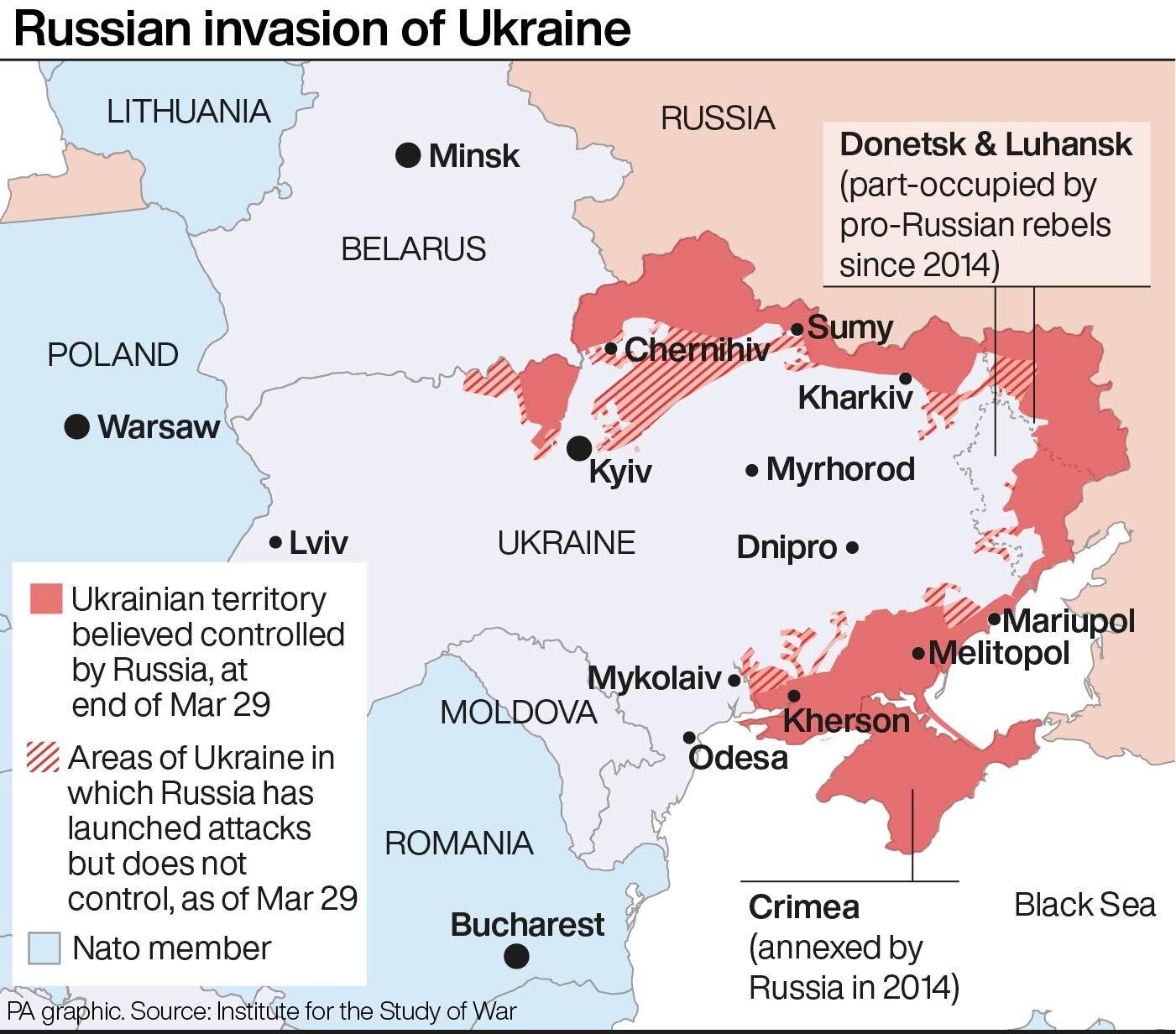Hundreds of Ukrainians ‘forced to dig trenches’ for Russian troops, rights group claims
At least 500 people have been taken hostage near Kyiv, says Ukraine’s Media Initiative for Human Rights
Your support helps us to tell the story
From reproductive rights to climate change to Big Tech, The Independent is on the ground when the story is developing. Whether it's investigating the financials of Elon Musk's pro-Trump PAC or producing our latest documentary, 'The A Word', which shines a light on the American women fighting for reproductive rights, we know how important it is to parse out the facts from the messaging.
At such a critical moment in US history, we need reporters on the ground. Your donation allows us to keep sending journalists to speak to both sides of the story.
The Independent is trusted by Americans across the entire political spectrum. And unlike many other quality news outlets, we choose not to lock Americans out of our reporting and analysis with paywalls. We believe quality journalism should be available to everyone, paid for by those who can afford it.
Your support makes all the difference.Hundreds of Ukrainians taken hostage near Kyiv are being forced to dig trenches for Russian troops, while some are being blindfolded and held without food, according to a report by a human rights group.
At least 500 people who were taken hostage from Kozarovichi, Dymer and Katyuzhanka in the Vyshhorod district of Kyiv region are living in basements and factory premises in Russian-occupied settlements, the report by Ukraine’s Media Initiative for Human Rights has revealed.
Journalists from the human rights group spoke to former prisoners, and relatives of current captives to expose how these people are being held captive.
“Water was provided from the heating system,” said one of the hostages, who wanted to remain anonymous.
He added that many hostages were forced to dig several trenches but did not specify where they were built.
The mother of a hostage said she was told by Russian troops that her sons were being taken to “work” in Gostomel. Later, she learnt from prisoners who had been released that her son had injured both of his hands.
Relatives of former hostages also recounted horror stories of dozens of villagers being taken prisoner.
“The detained Kozarovych residents were first kept in the village and then taken to Dymer. They are being held at Viknaland. We are talking about dozens of people from Kozarovichi alone. And there are also from other settlements, Dymer, Katyuzhanka,” the father of a prisoner said.
According to the report, Russian troops began taking hostages in the area right from the beginning of its invasion on 24 February.
The father of another hostage, Igor, said his son was detained on 4 March after Kremlin forces allegedly saw a photo of Russian equipment on his phone.

Some were also held on suspicion of being US agents.
“One acquaintance had a contact with his brother in the United States, and he was kept for a week because they thought he was an American agent,” said a person who lived in Kozarovichi for more than ten days.
Vitaliy Hekal, a lawyer with the Ukrainian Legal Advisory Group, said that taking civilians as hostages and subjecting them to forced labour is against Geneva Convention protocols.
“The party that occupied or occupied the territory must ensure the existing way of life on it (electricity, drainage, cleaning, operation of medical facilities, etc),” he said.
Mr Hekal added: “To do this, the civilian population can continue its usual activities, but this should not be accompanied by the use of violence, threats from the military. But in any case, it is forbidden to involve civilians in military work: digging trenches, building fortifications and fortifications, repairing military equipment, etc.”

Join our commenting forum
Join thought-provoking conversations, follow other Independent readers and see their replies
Comments